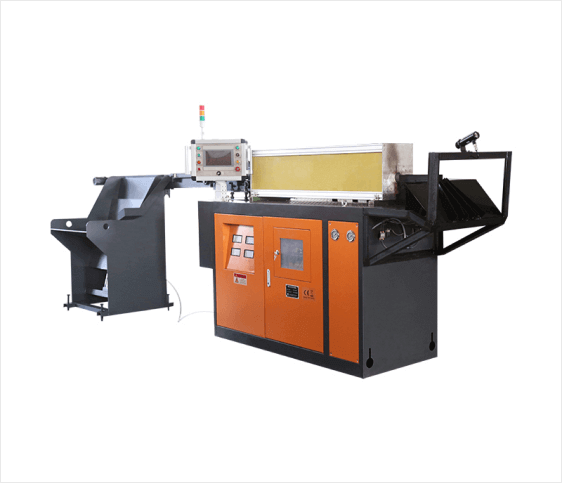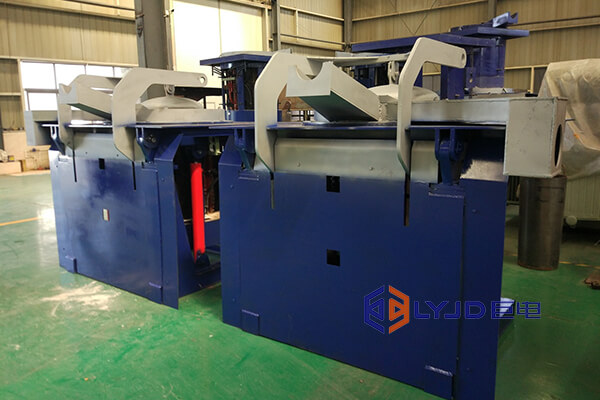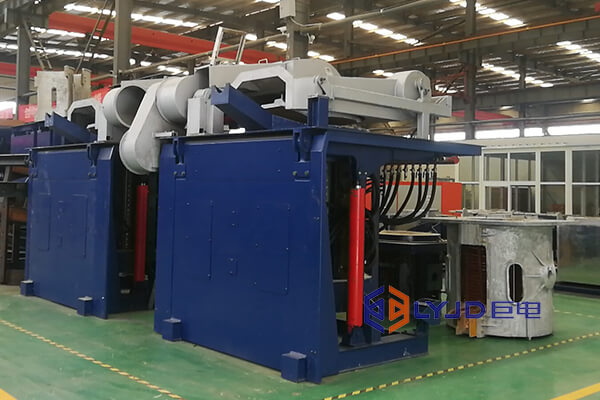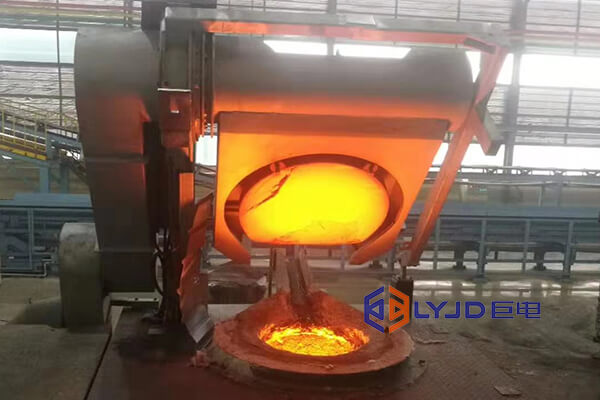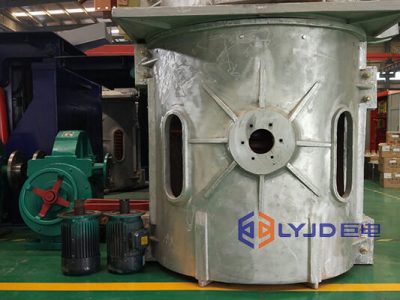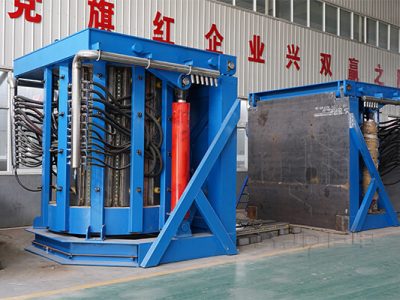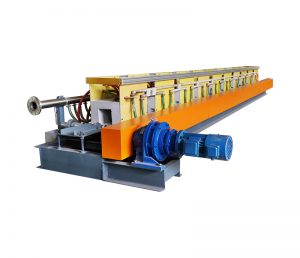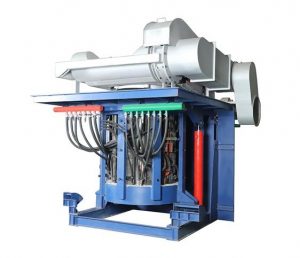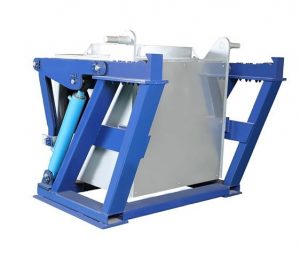A scrap iron melting furnace is a piece of equipment specially used to melt scrap iron and is usually used in the process of scrap iron recycling and reuse. This equipment can quickly and efficiently melt scrap iron into a liquid state for subsequent casting, forging or other processing processes.
There are many types and specifications of scrap iron melting furnaces. Common ones include medium frequency induction melting furnaces, arc melting furnaces, gas melting furnaces, etc. Each of these equipment has its own characteristics and can be selected according to different production needs and scrap iron types.
How to Choose a Scrap Iron Melting Furnace?
When choosing a scrap melting furnace, you need to consider the following factors.
Equipment Power and Capacity
The power and capacity of the equipment need to be determined based on the production scale and scrap iron volume to ensure that the equipment can meet production needs.
Melting Efficiency
Different types of scrap iron melting furnaces have different melting efficiencies, and appropriate equipment needs to be selected according to production requirements.
Energy Consumption and Environmental Performance
The energy consumption and environmental performance of the equipment need to be considered to select equipment that meets environmental requirements and is economical and practical.
Equipment Quality and After-Sales Service
It is necessary to choose an equipment supplier with reliable quality and good after-sales service to ensure stable operation and timely maintenance of the equipment.
The Price of Scrap Iron Melting Furnaces
The price of scrap iron melting furnaces varies depending on their model, size, power, technology level and manufacturer. Here are some common types of scrap iron melting furnaces and their price ranges.
Medium Frequency Induction Scrap Iron Melting Furnace
This kind of furnace uses medium frequency induction heating technology, which has the advantages of fast melting speed, energy saving and environmental protection. The price is usually higher, generally between tens of thousands to hundreds of thousands, depending on factors such as its power, capacity and degree of automation.
Electric Arc Scrap Melting Furnace
This type of furnace uses an electric arc to generate high temperatures to melt scrap iron. The price is relatively low. However, the energy consumption is high and the environmental performance may be poor. Prices usually range from tens of thousands to hundreds of thousands.
Gas Scrap Iron Melting Furnace
This type of furnace uses gas as a heat source to melt scrap iron. Affordable, but gas supply and cost need to be considered. Prices generally range from tens of thousands to hundreds of thousands.
Measures to Optimize Production Cost of a Scrap Iron Melting Furnace
To optimize production costs in scrap iron melting furnaces, consider the following strategies.
Efficient Scrap Sorting
Sort and segregate scrap iron based on quality and type to ensure optimal melting efficiency and reduce energy consumption.
Use of High-Quality Scrap
Utilize high-quality scrap iron to minimize impurities and reduce refining costs during the melting process.
Energy Management
Implement energy-efficient practices such as using renewable energy sources, optimizing furnace insulation, and minimizing heat loss to reduce energy costs.
Process Automation
Invest in automation technologies to improve process control, minimize human error, and maximize production efficiency.
Maintenance and Upkeep
Regular maintenance of furnace components and timely repairs can prevent breakdowns, reduce downtime, and lower maintenance costs.
Optimal Charging Practices
Load scrap iron into the furnace in a systematic manner to maximize furnace capacity and ensure uniform melting, reducing cycle times and energy consumption.
Continuous Monitoring
Implement real-time monitoring systems to track energy usage, production output, and process parameters for identifying areas of improvement and cost-saving opportunities.
Training and Skill Development
Provide training to operators on efficient furnace operation, maintenance practices, and safety protocols to maximize productivity and minimize operational costs.
Supply Chain Optimization
Streamline the supply chain for scrap iron procurement, storage, and handling to reduce transportation costs and ensure timely availability of raw materials.
Waste Management
Implement effective waste management practices to recycle by-products and minimize material wastage, reducing disposal costs and environmental impact.
In Summary
Optimizing the production cost of scrap iron smelting furnaces requires starting from many aspects, including improving equipment efficiency, optimizing raw material selection, optimizing smelting processes, reducing energy consumption and environmental protection costs, and strengthening management and training. Only by comprehensively considering these factors can we effectively reduce production costs, improve production efficiency and product quality, and achieve sustainable development of enterprises.
